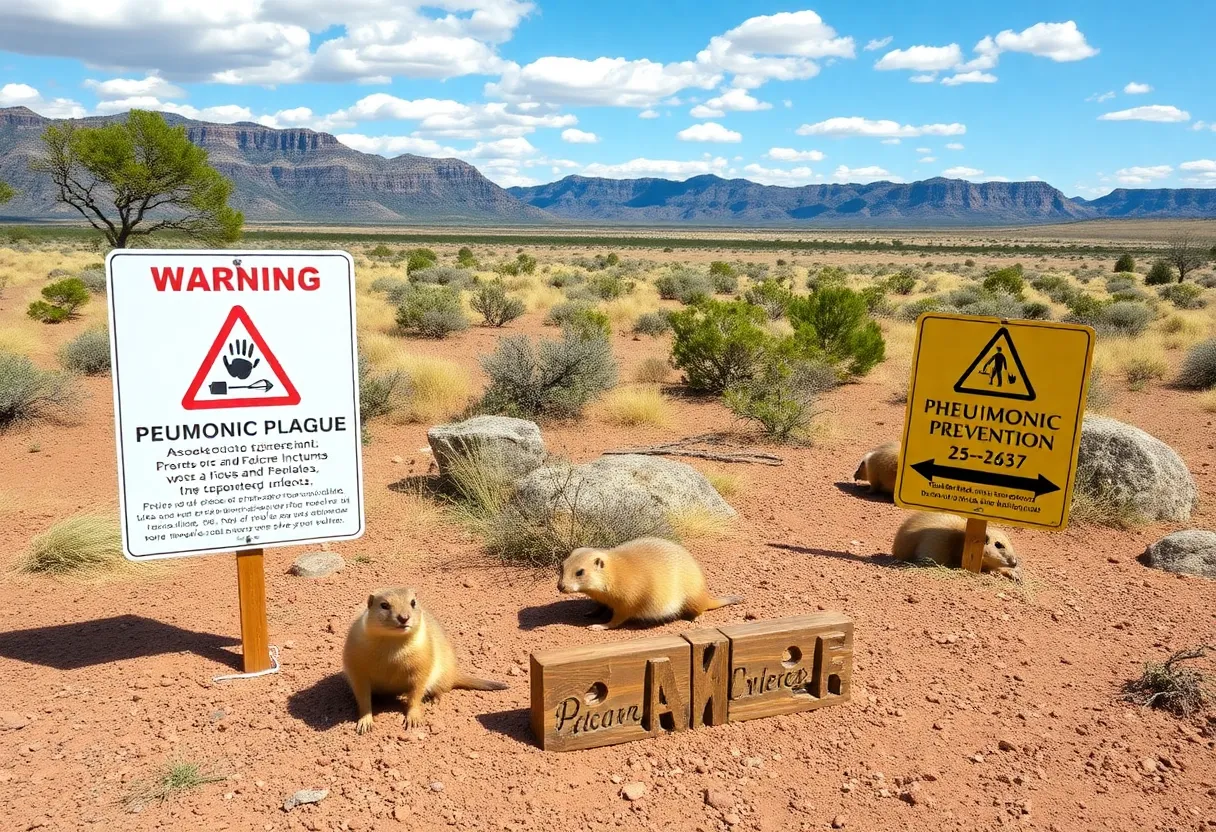News Summary
Coconino County health officials confirmed the death of a local resident from pneumonic plague, marking the first such fatality in the area since 2007. The individual passed away shortly after admission to a medical facility. The incident highlights the rarity and dangers of this severe lung infection, caused by Yersinia pestis. Although plague cases in the U.S. are infrequent, awareness and preventive measures are crucial to mitigate risks. Health experts are monitoring local wildlife die-offs, emphasizing safe practices when interacting with animals.
Coconino County, Arizona – A resident has died from pneumonic plague, marking the first recorded death from this infectious disease in Coconino County since 2007, as confirmed by health officials on Friday. The individual succumbed to the illness on July 11 after being admitted to the Flagstaff Medical Center’s emergency department, where they died the same day. Details regarding the identity of the victim have not been released out of respect for their family’s privacy.
The Chair of the Coconino County Board of Supervisors, Patrice Horstman, extended condolences to the family and friends affected by this tragic event. The occurrence of pneumonic plague, a severe lung infection caused by the bacterium Yersinia pestis, is extremely rare, especially in this region. Pneumonic plague, along with its variants bubonic and septicemic plague, has been responsible for historical pandemics, including the devastating Black Death in 14th-century Europe.
According to the Centers for Disease Control and Prevention (CDC), the United States generally sees around seven cases of plague each year, primarily concentrated in western states. Though deaths from this disease are uncommon, only 15 plague deaths have been recorded in the U.S. since 2000. Pneumonic plague is the most virulent form of the disease and can spread rapidly. It potentially can be transmitted through inhalation of infectious droplets from animals or infected individuals.
Symptoms of pneumonic plague typically appear within two to six days after exposure and may include fever, weakness, headache, and pneumonia-like symptoms. Human-to-human transmission risk remains low, with the last reported case in the U.S. occurring in 1924, but vigilance is essential in preventing potential outbreaks.
Health experts recommend caution when handling pets and dead or sick animals, as rodents are known carriers of the disease. Residents are also advised to employ preventive measures, such as using insect repellent and avoiding contact with wildlife, particularly in areas experiencing die-offs among local animal populations.
Currently, health officials are investigating a recent die-off of prairie dogs in the surrounding area, although they have stated that this incident is not related to the recent human case of pneumonic plague. Most cases of plague in the United States have been reported in rural areas of northern New Mexico, Arizona, southern Colorado, California, southern Oregon, and far western Nevada. Notably, about 80% of plague cases reported in the U.S. have been of the bubonic form.
While the risk of getting pneumonic plague remains low, public health officials continue to emphasize the importance of awareness and preparedness. Residents are encouraged to stay informed of any updates from health authorities and to practice safety measures to mitigate potential risks.
Deeper Dive: News & Info About This Topic
- CBS News
- Wikipedia: Pneumonic plague
- The Guardian
- Google Search: pneumonic plague
- Scientific American
- Encyclopedia Britannica: Plague
- AZ Family
- Google News: pneumonic plague Arizona

Author: STAFF HERE PHOENIX WRITER
The PHOENIX STAFF WRITER represents the experienced team at HEREPhoenix.com, your go-to source for actionable local news and information in Phoenix, Maricopa County, and beyond. Specializing in "news you can use," we cover essential topics like product reviews for personal and business needs, local business directories, politics, real estate trends, neighborhood insights, and state news affecting the area—with deep expertise drawn from years of dedicated reporting and strong community input, including local press releases and business updates. We deliver top reporting on high-value events such as the Waste Management Phoenix Open, Cactus League Spring Training, and Arizona State Fair. Our coverage extends to key organizations like the Greater Phoenix Chamber of Commerce and Visit Phoenix, plus leading businesses in technology and healthcare that power the local economy such as Intel and Banner Health. As part of the broader HERE network, including HERETucson.com, we provide comprehensive, credible insights into Arizona's dynamic landscape.





